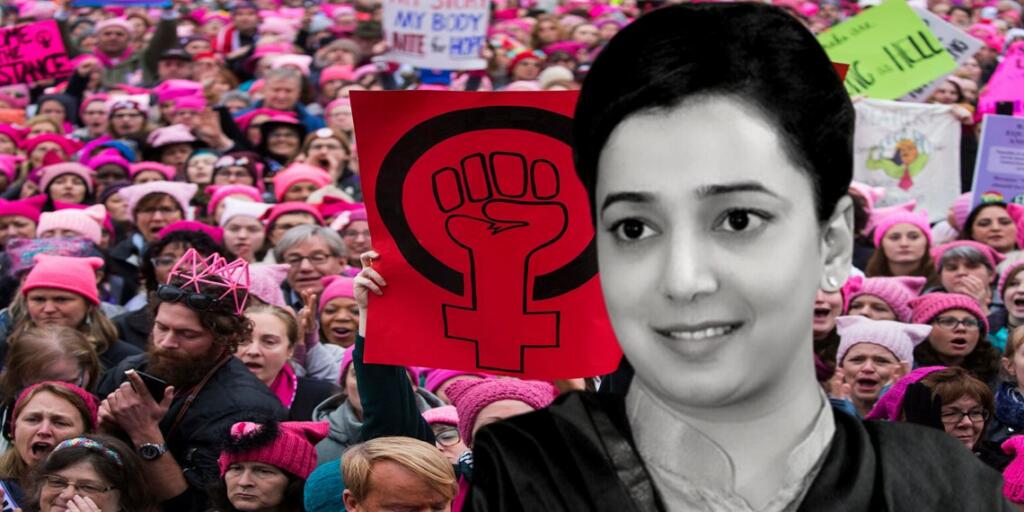- Are you also moved by the idea of feminism?
- If not always, but, at least for once, you must have thought about the oppression of women and the misogynist approach of many.
- It is human tendency to accept anything vocal as the truth and ignore the silent opinion. Thus, you might not believe that female privilege is a real thing.
Be it a seat in a metro or punishments by the judicial system, the women in India have been enjoying the female privilege. Yes, that’s true. But, what can be seen as a dissatisfactory move is when the women who have committed a crime as similar as men could have committed, enjoy judicial favouritism.
It is believed that women are oppressed but if it is so, why do they live more? No doubt that in some instances, male privilege exists but this doesn’t rule out the existence of female privilege. In short, male privilege has been identified by the world but female privilege is something that people do not even talk about.
If you do not believe these claims, just look at the Ishrat Jahan case. The case depicts that the Delhi riot accused Ishrat has been given bail only because of the female privilege. Let me tell you how?
Ishrat Jahan was granted bail by the Delhi court
Undoubtedly, just like every other Homosapien, women and girls are subjected to physical, sexual and psychological abuses. These kinds of abuses are mainly suffered by women of classes lower in the economic and social hierarchy. But, the recognition of this kind of oppression and its related protective norms are mainly used to provide an advantage to elite class women accused of various forms of criminal behaviours.
Yet, this is exactly what has been done. A Delhi sessions court has granted bail to Ishrat Jahan in an Unlawful Activities Prevention Act case. Jahan, a former Congress councillor, was sentenced to jail over allegations of her connection with the riots in northeast Delhi.
Bar and Bench reported that “The bail was granted by Additional Sessions Judge Amitabh Rawat of the Karkardooma Court.”
It is pertinent to note that the FIR filed against Jahan contains charges not only under the UAPA but also the Indian Penal Code, the Arms Act and the Prevention of Damage to Public Property Act.
A tale of female privilege
Wait for what? You thought that only Ishrat Jahan is the one to get benefitted from female privilege. No, there are many on the list. A court had granted bail to Safoora Zargar, whose imprisonment on charges of instigating riots had triggered global outrage. You know, why? Because she was pregnant.
Earlier as reported by TFI, the Bombay High Court went back and forth to decide on the death sentences awarded to Renuka Shinde and Seema Gavit. It had commuted the decision of death sentence to life imprisonment. The two sisters– Renuka, alias Kiran Shinde, and Seema, alias Devki Gavit along with their mother Anjanabai were tried by the Additional Sessions Judge in Kolhapur in 1997 for kidnapping 13 children, attempting to kidnap another and murdering nine of the 13 children between June 1990 and October 1996.
Read more: Renuka Shinde, Seema Gavit and Kumari Chandra: How judiciary keeps pardoning child-killing women
In another instance, the Rajasthan High Court had acquitted a woman named Kumari Chandra who was accused of pushing three children to death. She was released on the ground that she was under duress due to premenstrual stress syndrome (PMS).
Interestingly, the first female hanging house was built in Mathura jail almost 150 years ago, but no convict has been hanged there since Independence.
On the contrary, a man had to spend 20 years in jail under false rape charges. The alleged incident of rape, which has now been found to never have occurred, was reported in the year 2000. For the past 20 years, the accused man – Vishnu was in jail. The acquittal came after the Allahabad HC found that the trial court had ‘materially erred’ while convicting him.
Read more: 74% of all rape cases filed in India are fake
The fundamental idea behind equality of law is that no one will be discriminated against based on their immutable characteristics. Simply put, the legal system is supposed to punish a criminal without even looking at their religion, race, caste and gender. But, over the period, the legal system has developed a special soft corner for elite women criminals.
We do not deny that women are not the victim. But, not every woman is equally good. Setting up a system where a particular class of a particular gender will not be punished reeks of absolute elite female privilege. It’s time when we should start differentiating between actual female victims and freeloaders of female victimisation. A criminal charged under UAPA can be a threat to national security and should not be granted bail only based on gender.
